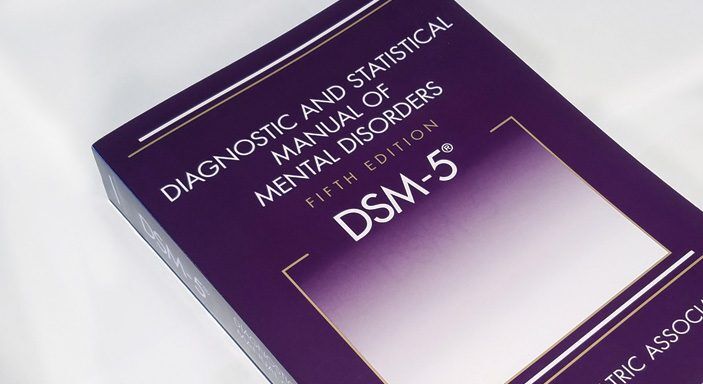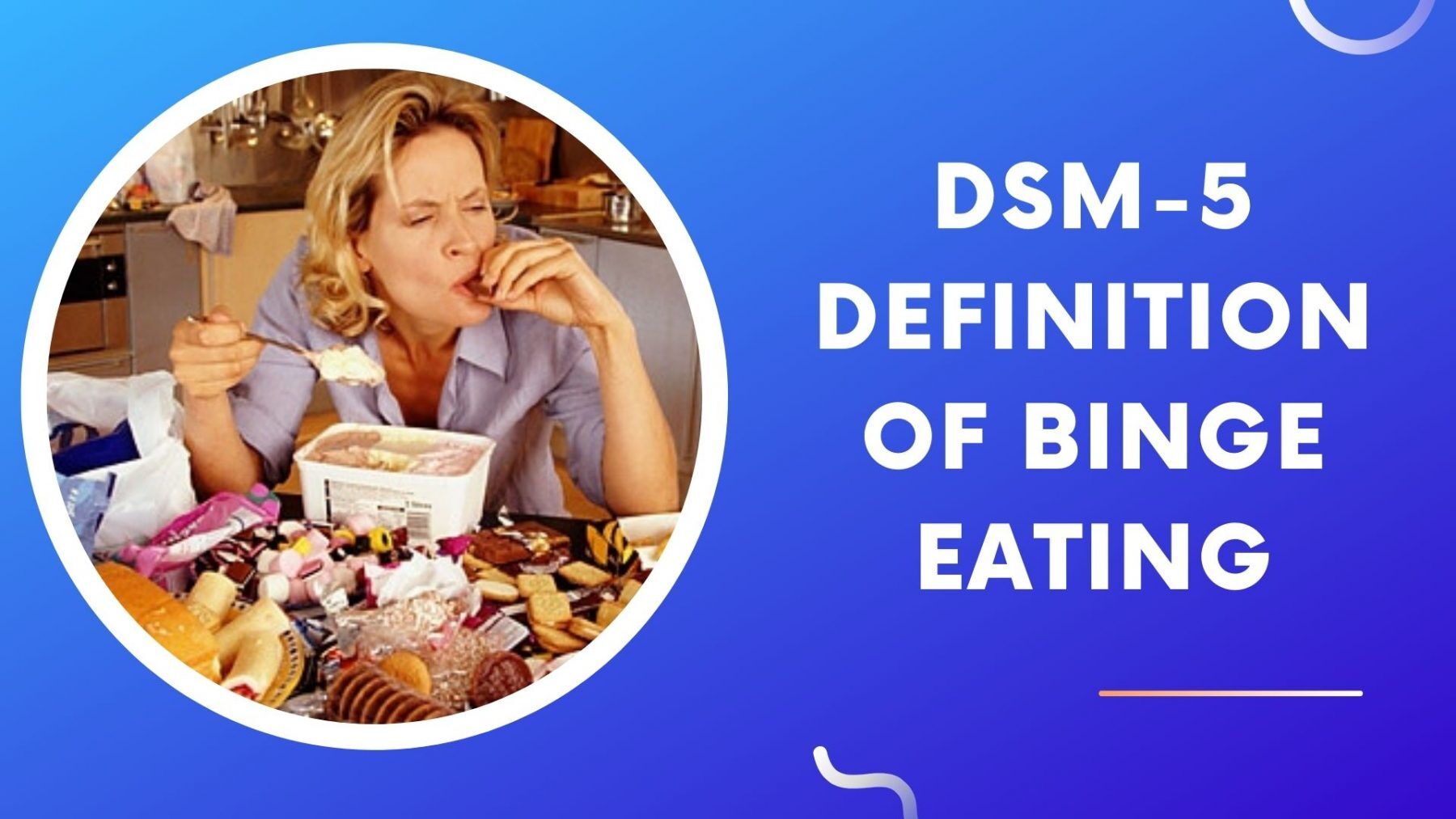Are you wondering about the technical binge eating disorder DSM5 definition?
Perhaps you may find that you eat and feel out of control. But it can be hard to tell if you have an eating disorder or just overeat every once in a while. Or, maybe you’re a therapist who has a client who struggles with overeating.
Whichever the case, it’s easy to see whether you have Binge Eating Disorder (BED), one of the most common eating disorders.
Why is it easy? There is a big difference between BED and overeating.
BED is a mental disorder that has to do with the way you think about food and your body.
It’s caused by many things, including genetics or trauma in childhood. But BED often goes untreated because people don’t know what the long-term consequences are if it is left unchecked for years on end.
But despite the differences, solutions to both BED and overeating are pretty similar.
First let’s discuss the DSM-5 and the definition of Binge Eating Disorder.
Then we’ll circle back around to solutions to all types of overeating struggles.
First, What Is Binge Eating Generally Speaking?
The term ‘binge’ means to overindulge in food and drink, often with an intent to get drunk.
I’ve heard people use ‘binge’ in different contexts before such as:
- Eating way too much way too quickly
- Overeating a little
- Eating far too much very often
- Eating far too much but not very often
- Overeating on holidays
Generally speaking, binge eating refers to eating too much food. But this is definitely not the technical definition of Binge Eating Disorder!
What Is The DSM-5?

The DSM-5 is an American Psychiatric Association manual used by mental health professionals to diagnose and classify mental disorders. Or in our case, eating disorders!
The technical name for the DSM-5 is the Diagnostic and Statistical Manual of Mental Disorders.
It was created in 1952, but was revised in 1968, 1980, 1994, 2000 and 2013. The 2013 revision is known as DSM-5 and it contains more than 300 specific diagnoses.
These 300 specific diagnoses are organized into 20 chapters according to a broad classification system for psychiatric disorders called “axes”:
- axis I – clinical conditions
- axis II – personality disorder diagnosis
- axes III through V – developmental disabilities including autism spectrum condition, intellectual disability etc.
- axis VI – medical/physical problems such as brain injury
Binge Eating Disorder According To Top Health Authority Websites
In this video I research leading health websites for their definition of BED.
Can you see the similarities? The definitions are similar, but not identical.
In comparison to the more general ‘bingeing’, we can see Binge Eating Disorder involves two key things:
- distinct lack of control
- frequency
The Actual DSM-5 Binge Eating Disorder Definition
Now let’s go straight to the horse’s mouth!
Here is the link to the DSM-5’s Binge Eating Disorder definition.
The following information is from the DSM-5 without any edits. There are 5 diagnostic criteria for binge eating.
Criterion 1
Recurrent episodes of binge eating. An episode of binge eating is characterized by both of the following:
- Eating, in a discrete period of time (e.g., within any 2-hour period), an amount of food that is definitely larger than most people would eat in a similar period of time under similar circumstances
- The sense of lack of control over eating during the episode (e.g., a feeling that one cannot stop eating or control what or how much one is eating)
Criterion 2
Binge eating episodes are associated with three (or more) of the following:
- Eating much more rapidly than normal
- Eating until feeling uncomfortably full
- Feeling disgusted with oneself, depressed, or very guilty after overeating
- Eating large amounts of food when not feeling physically hungry
- Eating alone because of being embarrassed by how much one is eating
Criterion 3
Marked distress regarding binge eating is present.
Criterion 4
The binge eating occurs, on average:
- at least 1 day a week for 3 months (DSM-5 frequency and duration criteria)
Criterion 5
The binge eating is not associated with the regular use of inappropriate compensatory behavior (e.g., purging, fasting, excessive exercise) and does not occur exclusively during the course of anorexia nervosa or bulimia nervosa.
Severity Grading
Applicable to DSM-5 only, BED severity is graded as follows:
- Mild: 1 to 3 episodes per week
- Moderate: 4 to 7 episodes per week
- Severe: 8 to 13 episodes per week
- Extreme: 14 or more episodes per week
What do you think of these 5 diagnostic criteria for binge eating?
I realize these 5 diagnostic criteria for binge eating don’t cover all situations! But still, I’m curious what you think. Let me know in the comments below!
Are we missing anything?
Or is this definition a little outdated, you think?
What If You Don’t Have Binge Eating Disorder?
If you overeat but don’t have BED, then the DSM-5 defines it as “eating in a manner that is not typical for an individual.”
This means someone who eats large amounts of food during one sitting or day. This is sometimes called emotional eating.
The person may feel guilty about their behavior. They may want to stop doing this type of eating because they know what’s happening isn’t healthy.
But if there are no other symptoms present such as anxiety around food, this is not BED.
So while people might say “I eat too much sometimes,” without knowing how often those times happen or feelings associated when consuming large amounts like guilt afterwards, you can’t say you have Binge Eating Disorder.
Eating disorders are tricky like that!
How To Get Treatment For Overeating If You Don’t Have BED?
You may read the above definition and realize you most definitely do not have BED.
Sometimes people get concerned. If you don’t have BED, does this mean your problem is insignificant and hopeless?
There is good news! The treatment used for Binge Eating Disorder also can help anyone with overeating struggles.
There are many people who overeat because they are stressed and want to escape their reality.
This is not Binge Eating Disorder. But this can be an emotional or stress-related issue that needs addressing in other ways (such therapy) than just changing food intake alone.
Another situation is where you’ve worked too hard and your brain needs to take a break.
Or, you may eat too much because you are bored.
In these situations the same techniques to cure Binge Eating Disorder also apply.
The first step is to figure out what the triggers are and then find ways of coping with them.
For example, you may overeat because your brain needs a break from work-related stressors (or any other type of stressor).
It’s important not only for mental health but also physical well-being that we take breaks during our day. This will help you avoid burnout or depression. If you continue to burn out or suffer depression, this can lead you back into binge eating behaviors again!
Also make sure when possible to try taking short walks outside instead overindulging at home by yourself while watching TV.
Breaking up your day will help reduce feelings like boredom, too – both physically & mentally beneficial 🙂
And don’t forget about getting enough sleep either!! This may sound obvious yet many people still neglect their needful rest time.
Now these tips are simple and apply equally to BED and emotional eating.
Don’t get caught up too much in the definitions.
Understand that you may have a problem, but also realize there are solutions no matter where you fall on the spectrum.
Any questions? Let me know in the comments below!



